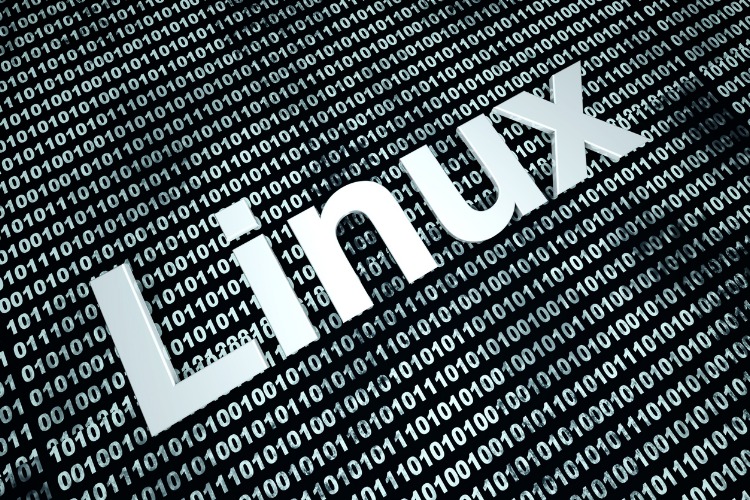Protect the penguin: 7 tips for securing Linux endpoints
Linus Torvalds launched Linux on Sept. 17, 1991, making it 31 years old. Since its humble beginnings as Torvalds' hobby project, now over 27.8 million lines of code are in Linux's name, making it the OS of choice for servers, public clouds, and supercomputers.
Because of the ease of installation and use, Linux is widely used in businesses and largely acknowledged as an alternative to traditional operating systems. Being open source, Linux provides greater freedom for implementing custom configurations. Linux has truly earned its place as one of the world's top operating systems.
What does Linux mean in a market dominated by Windows?
Linux powers far more worldwide technology than most people realize. Windows now controls 75.28% of the global OS market. Endpoints based on Linux accounts for only 2.76% of all endpoints as of August 2022. With such a tiny percentage, what makes Linux so powerful?
You may not notice Linux in the forefront, but you might be surprised at how frequently you use Linux in your daily life. There's no need to search far because Instagram, Facebook, YouTube, and Twitter all operate on Linux. Apple's iCloud runs Linux. Linux powers products from Samsung, Phillips, LG, and Panasonic. Auto companies Toyota, Mazda, Mercedes-Benz, and Volkswagen all employ Linux for their in-car entertainment systems. Your set-top boxes, streaming gadgets, and home networks likely allow you to access the internet via a Linux system. The Library of Congress, House of Representatives, Senate, and White House all utilize Linux for their online operations. Android, which is based on Linux, is used by 71.5% of all mobile devices.
In 2022, Linux runs all of the world's top 500 supercomputers and 96.3% of the world's top 1 million servers. Interestingly, China has its own Linux operating system, Ubuntu Kylin. What's more, NASA's Ingenuity Mars Helicopter runs Linux. So, Linux is flying over Mars!
Linux security begins with the endpoints
Organizations will continue to rely on Linux systems to power their digital infrastructures due to Linux's omnipresence, performance, reliability, and adaptability. Cybercriminals are still exploiting gaps and security flaws in these Linux systems to get unauthorized access.
Trend Micro warns of a 75% increase in ransomware attacks on Linux machines in H1 2022 as compared to H1 2021. Endpoints are viewed by cybersecurity experts as the entryways for many forms of intrusions. It is critical to keep one step ahead of these attacks. Below are a few tips to keep your Linux machines secure.
- Update your software and Linux distros
Remove unused software and outdated operating systems and apps. Older versions of software and Linux distros are appealing to attackers because they include unpatched vulnerabilities that they may exploit. If you can't get rid of legacy systems, protect them with strong locks via network access and privileged access controls. In linux distribution, by following the steps of debian add user to sudoers is a crucial step in granting administrative privilages and ensuring efficient management of linux server.
- Disable unused applications or ports
The fewer applications and services that are running on Linux endpoints, the fewer potential targets there are for the attacker. And the fewer ports and doors an attacker has to search through, the more difficult it is for them to succeed. The goal is to make it so difficult for the attacker that they give up and move on to the next target.
- Keep your endpoints completely patched
While Linux being open-source has numerous benefits, developing a comprehensive Linux patching plan may be fairly difficult. However, you must regularly search your endpoints for missing patches, download fixes from vendor websites, and deploy them to the appropriate Linux systems. A patch management tool can help you automate this process.
- Establish a strict password policy
Establish a routine for your staff to use a password manager so that you can avoid the use of default credentials. One of the leading causes of cyber fatigue, a strict password policy, may be reduced by automating password rotation, lowering complexity, and integrating SSO and MFA.
- Make use of robust authentication
With half of your employees requiring remote access, multi-factor authentication is essential. Never rely only on a password to protect your endpoints from an attacker.
- Establish strict access controls
Conform to the concept of least privilege and implement a Zero Trust strategy for third-party access. Force third-party access through a PAM solution so you know who has access, what they have access to, and why—all before access is granted.
- Next-generation endpoint management software
A unified endpoint management solution is required to manage and protect your network's many types of devices, such as desktops, laptops, mobile devices, printers, and scanners, from a single platform. It can automate most processes, freeing up your time to perform more essential tasks.
Endpoint Central for Linux
One of the most time-consuming and labor-intensive responsibilities for an administrator is managing all of the machines in a network. Endpoint Central increases administrator efficiency by automating all desktop administration tasks and managing multiple operating systems from a single console. It also assists enterprises in implementing Zero Trust rules while maintaining a great user experience.
- End-to-end patch management, including automatic OS and 140+ third-party patching
- Asset management for both physical and digital assets, in real-time
- Use 38,000+ Ubuntu and 200+ Debian pre-defined application templates to deploy applications in seconds
- Remotely operate and repair devices via one-click desktop sharing while maintaining user privacy
- Generate reports with a variety of data ranging from information on Active Directory reports to network inventory
- Subject endpoints to vulnerability assessment and remediation
Try a 30-day, fully functional free trial today!
Author details:
Reeni B is a product marketer for ManageEngine. She enjoys bridging the gap between the product and the people. As a cybersecurity enthusiast, Reeni believes cybersecurity touches everyone and aims to educate in a manner that is accessible to all.

